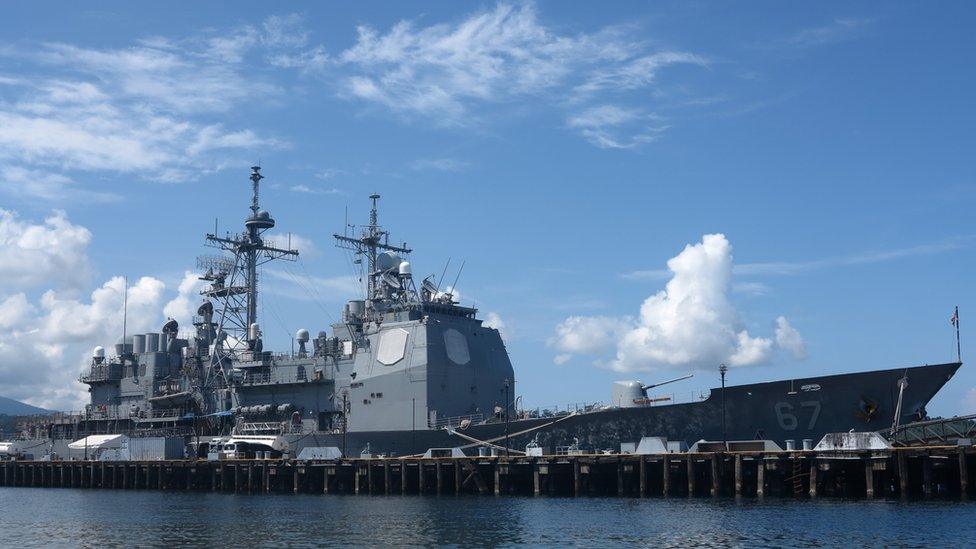South China Sea: Philippines and Beijing await court ruling
- Published
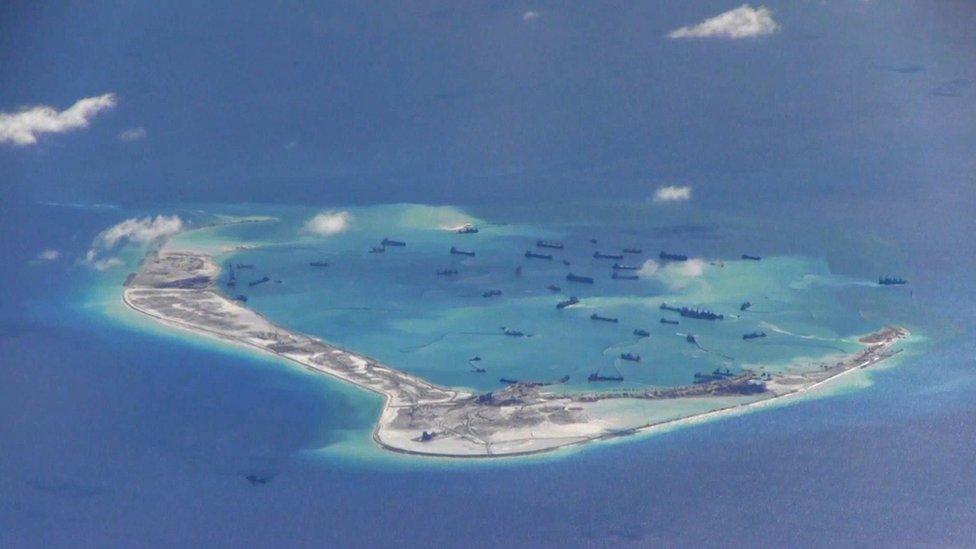
China has accelerated construction on some disputed reefs
An international tribunal is set to give a long-awaited ruling, with implications for China's controversial claims in the disputed South China Sea.
The case at the tribunal in The Hague was brought by the Philippines, which argues Chinese activity in the region is against international law.
China claims almost all of the South China Sea, including reefs and islands also claimed by others.
China says the tribunal has no right to rule on the case.
The case is being decided by an arbitration tribunal under the United Nations Convention on the Law of the Sea (UNCLOS), external, which both countries have signed.
The BBC's Jonah Fisher explains the huge legal implications of how the disputed South China Seas islands are classified
However, observers say the decision could favour the Philippines - and China risks reputational damage if it does not abide by it.
They also warn there is a risk that China could react aggressively to a ruling against it.
The ruling is binding but the tribunal, the Permanent Court of Arbitration, has no powers of enforcement.
The US has sent an aircraft carrier and fighter jets to the region, prompting an angry editorial in the Global Times, external, a strongly nationalist state-run newspaper, calling for China to prepare for "military confrontation".
Meanwhile, the Chinese Navy has been carrying out exercises near the disputed Paracel islands.
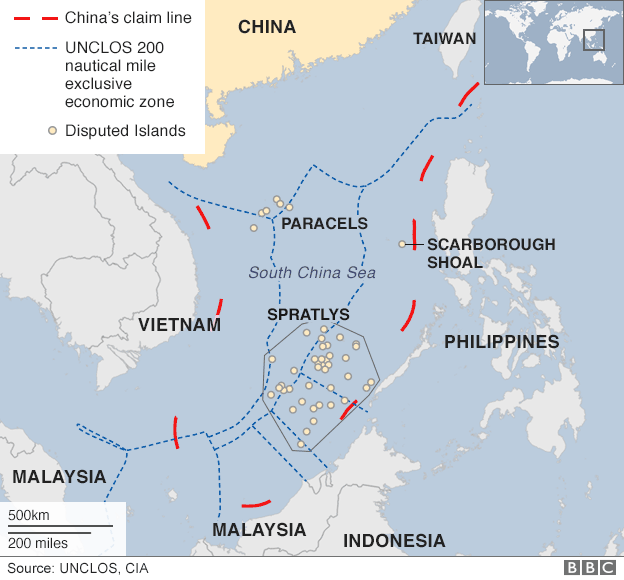
The tribunal has previously said it is the appropriate body to rule on at least seven of the 15 claims in the Philippines' case and was still considering the other eight.
China has been trying to gather international support. Its diplomats have written a slew of articles setting out their government's position in English-language media around the world.
China says about 60 countries support its stance that the tribunal's ruling should be rejected, but few have declared their support publicly.
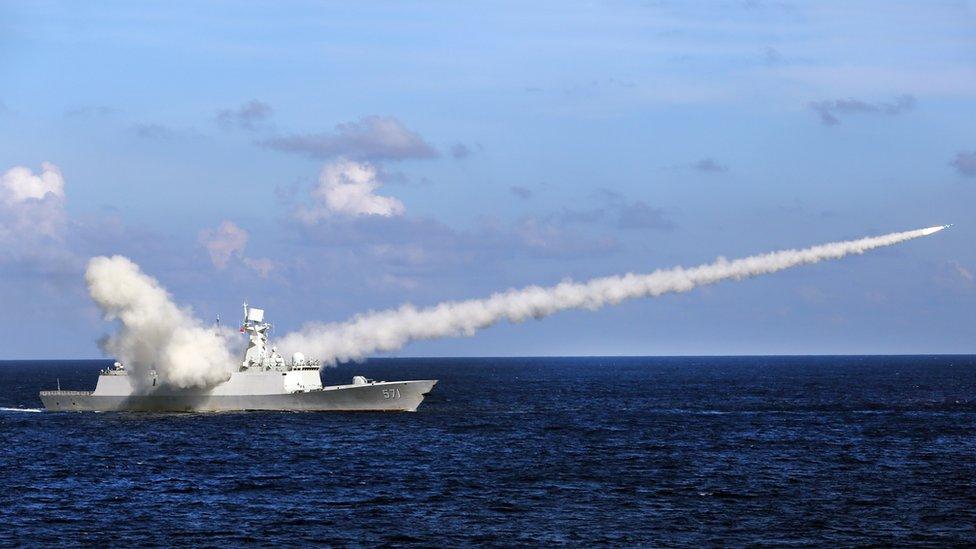
Chinese ships have been on naval exercises ahead of the ruling

What is the case about?

The Philippines brought a case in 2013 to the UNCLOS tribunal, contesting China's claims and activity in the South China Sea, saying that they were contrary to international law. It has accused China of interfering with fishing, dredging sand to build artificial islands, and endangering ships, among other claims.
It also asked the tribunal to reject China's claims to sovereignty over as much as 90% of the South China Sea, marked by a "nine-dash line" on official Chinese maps.
What is the impact of its ruling?
According to Bill Hayton, author of South China Sea: The struggle for power in Asia, a large part of the case is about asking the court to decide what specific land features in the area are, and therefore how much claim to territory each country has.
Low-tide elevations, or reefs, which are visible only at low tide, get no territorial waters,
Rocks, which are defined as anything above water at high tide regardless of size, get a 12-nautical mile limit of water around them
An island, which is able to "sustain human habitation or an economic life of its own", is given a 200-nautical mile exclusive economic zone around it.
Therefore, if the tribunal rules that nothing that China occupies in the Spratly Islands is a proper island, it will be unable to claim land rights of 200 nautical miles.
The BBC's John Sudworth went to track down the famed 600-year-old book
Although the ruling is binding, the tribunal has no powers of enforcement. However, the ruling could set a precedent for similar cases in future.
Will it make a difference?
China has boycotted the tribunal, saying that the panel has no jurisdiction. It has already said it will not "accept, recognise or execute" the decision.
China's tours in disputed South China Sea
However, if the ruling favours the Philippines, China could risk reputational damage and be portrayed as a country that ignores international law, perhaps leading to greater tensions between China and the Philippines, or the US, which has sent significant military assets to the area.
The Philippines' new President Rodrigo Duterte has said his country is willing to share natural resources with Beijing in contested areas even if the tribunal rules in its favour.
Mr Duterte has adopted a more conciliatory approach to China than previous president Benigno Aquino, and it remains to be seen how the ruling will affect the two countries' relations.
Read more: Why is the South China Sea contentious?

- Published19 June 2016
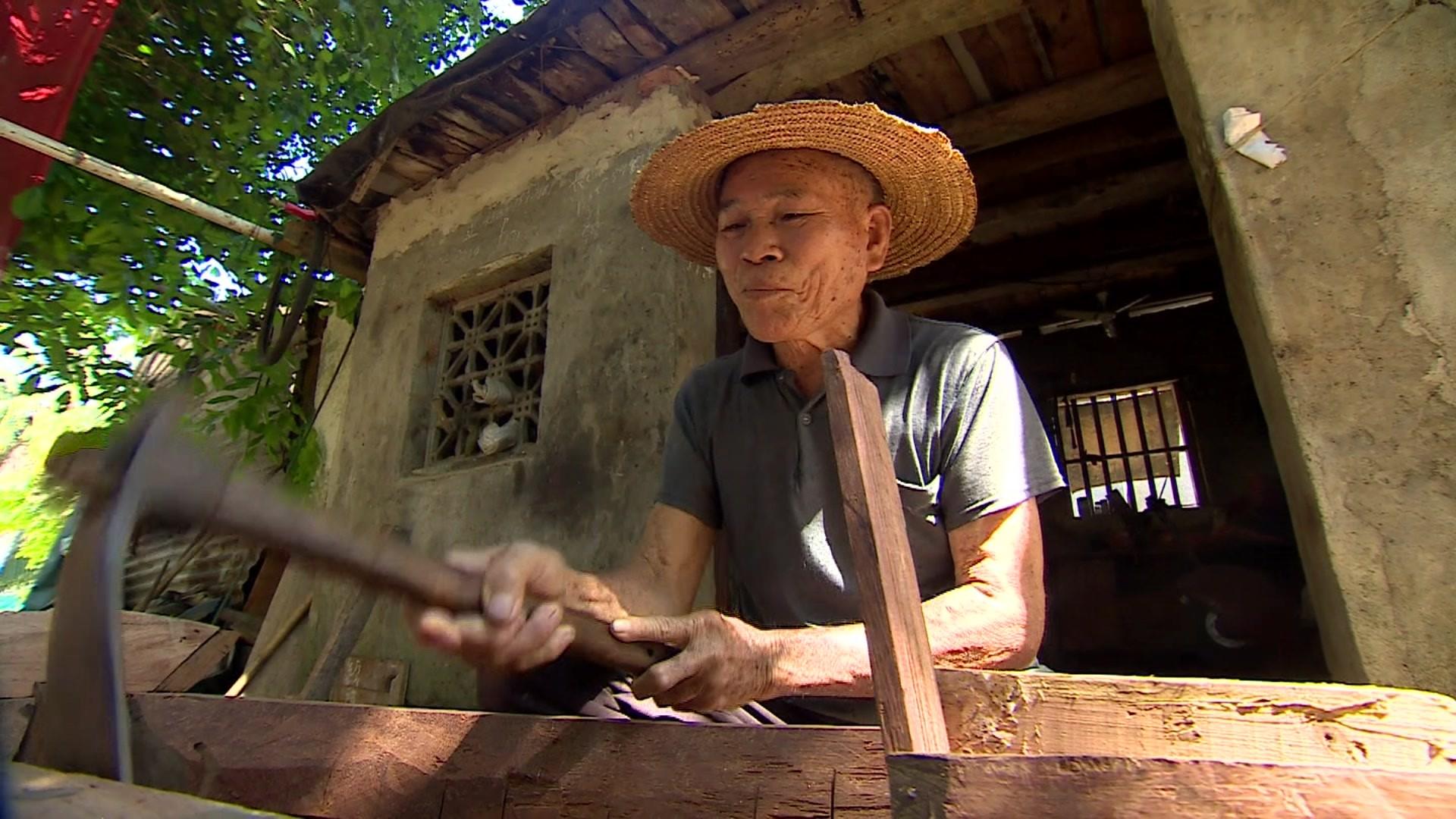
- Published19 June 2016
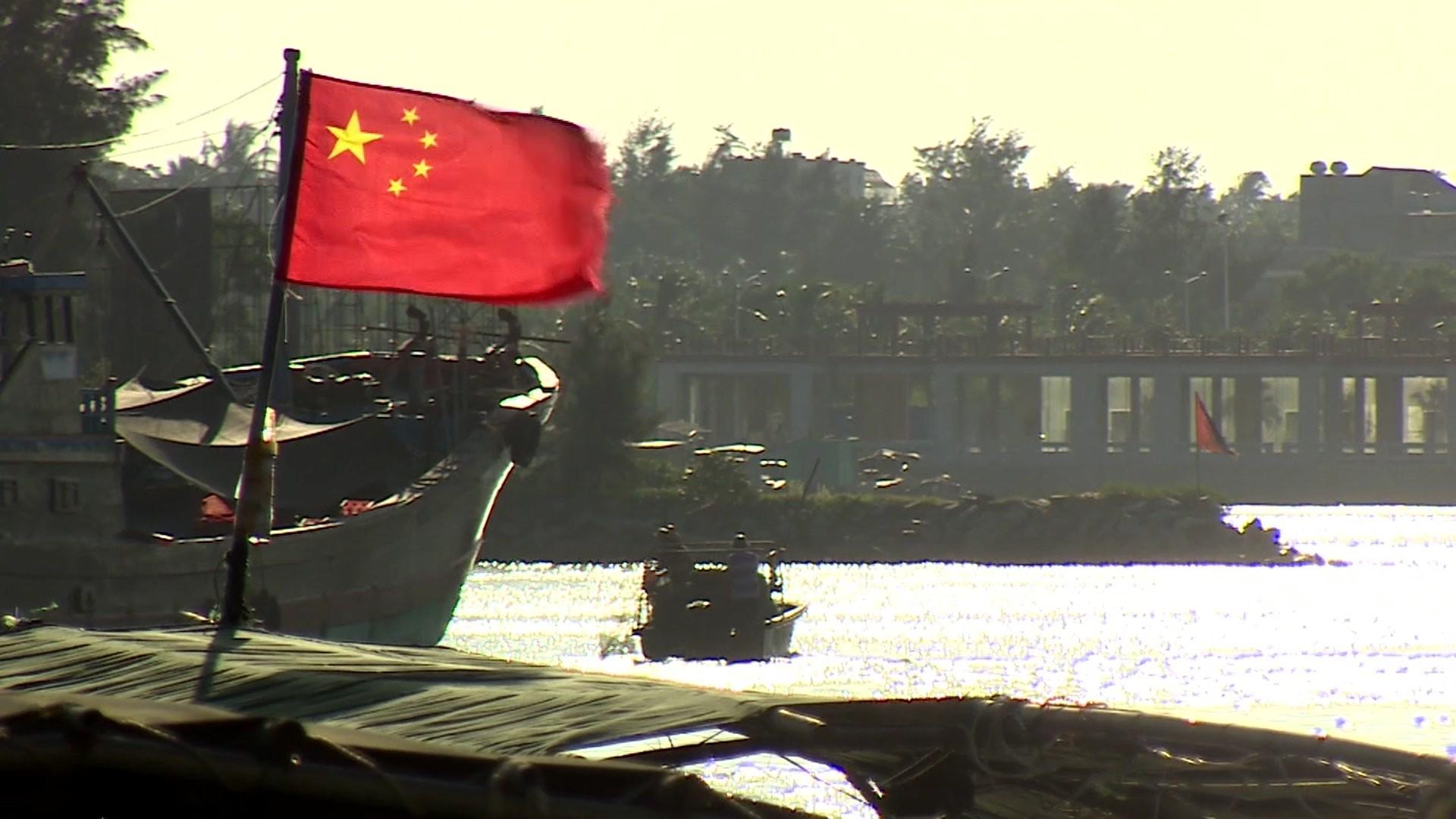
- Published14 December 2015
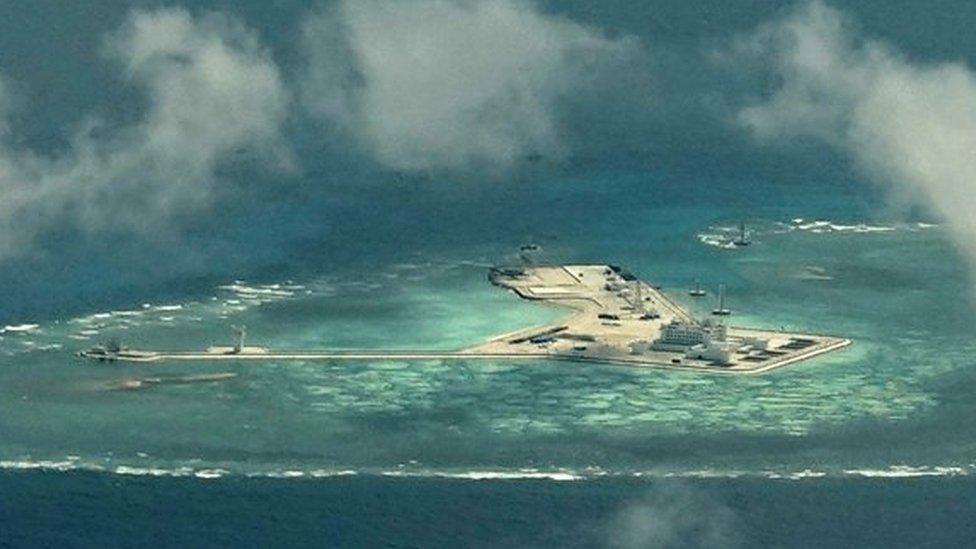
- Published11 July 2016
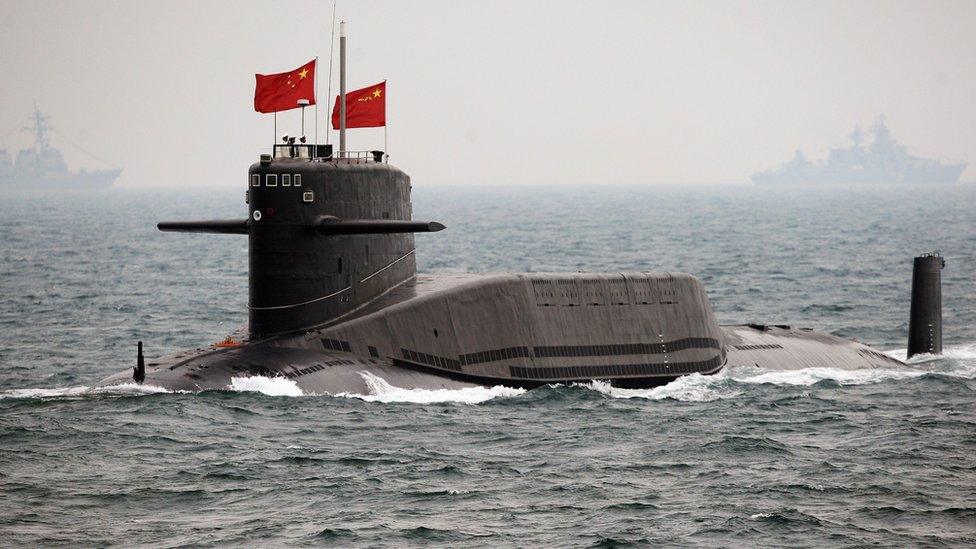
- Published11 July 2016
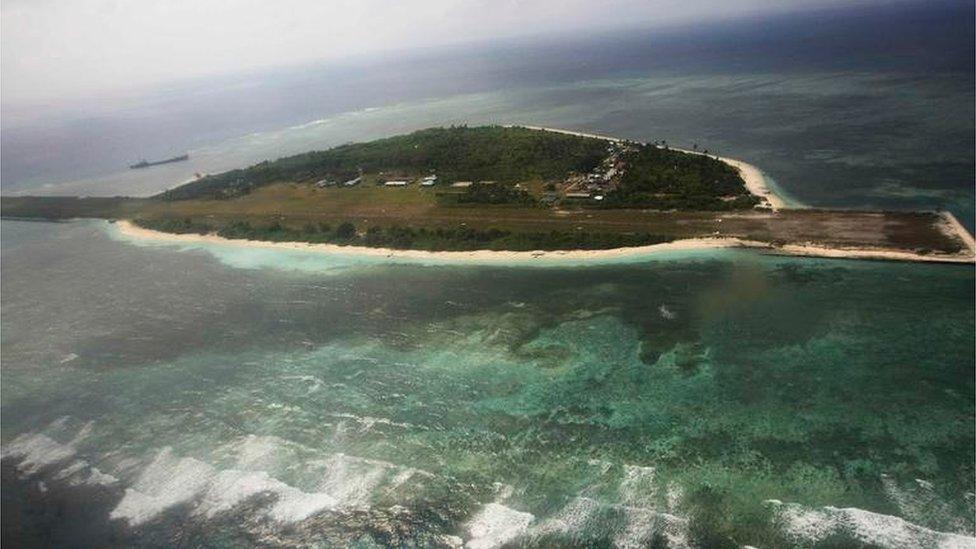
- Published7 July 2023
